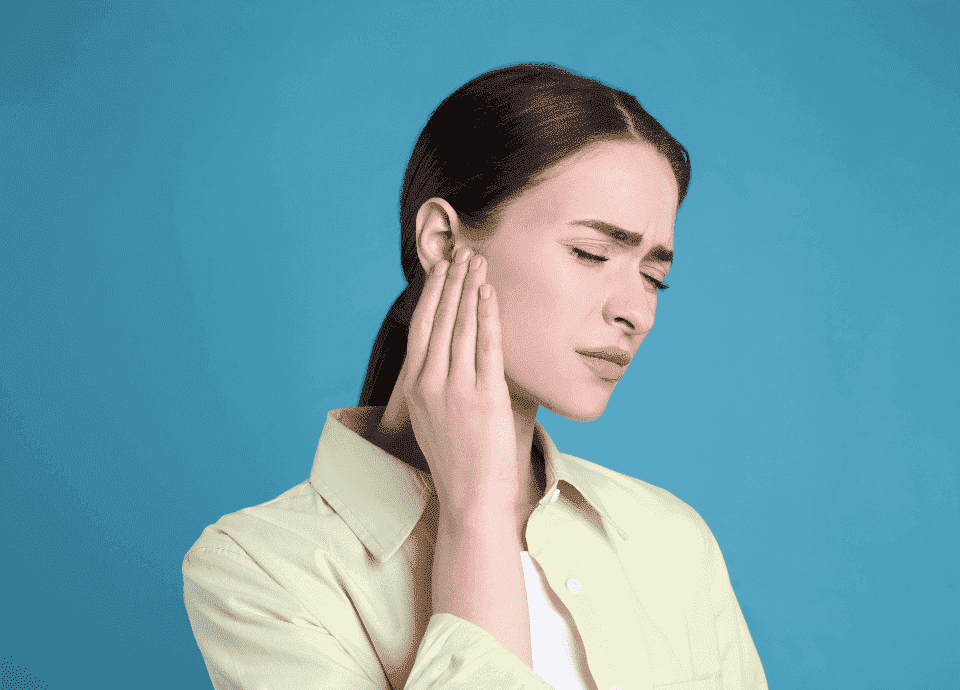Tooth extraction becomes necessary for various reasons, such as severe decay, trauma, or overcrowding. While aiming to alleviate discomfort and prevent dental issues, some patients may experience ear pain. Although alarming, it’s often a regular occurrence due to the complex network of nerves in the oral and facial regions. Typically, this discomfort subsides as the healing process progresses. Understanding that it’s a common phenomenon can help alleviate concerns. This article will share some common reasons for ear pain after tooth extraction and possible remedies.
Why Does Ear Pain Happen After Tooth Extraction?
1. Nerve Connectivity: The oral and facial regions share a complex network of nerves, including branches of the trigeminal nerve, which also supplies sensation to the ear.
2. Referred Pain: Due to the interconnected nature of nerves, pain signals originating from the extraction site may be perceived in nearby areas, such as the ear.
3. Inflammation: The surgical trauma and subsequent healing process around the extraction site can cause inflammation, which may radiate to adjacent tissues, including the ear.
4. Muscle Tension: During the extraction procedure, there may be involuntary muscle tension in the jaw and facial muscles, leading to referred pain sensations in the ear.
5. Temporomandibular Joint (TMJ) Involvement: Manipulation of the jaw during extraction can temporarily affect the TMJ, potentially causing discomfort perceived as ear pain.
Is Ear Pain Common?
Ear pain following tooth extraction is relatively joint, especially in procedures involving the lower teeth. This phenomenon occurs due to the complex network of nerves shared between the oral cavity, jaw, and ear. While concerning, especially for first-timers, it’s often a normal part of healing. If the pain persists or worsens significantly, consult a dentist or oral surgeon for proper healing and to address complications.
Tip to Manage Ear Pain After Extraction
1. Pain Medication: Take prescribed or over-the-counter pain relievers as directed by your dentist or oral surgeon to help alleviate discomfort, which may indirectly reduce ear pain.
2. Cold Compress: Apply a cold compress to the outside of the cheek near the extraction site for 20 minutes to help reduce inflammation and numb the area, potentially alleviating ear pain.
3. Gentle Jaw Exercises: Perform gentle jaw exercises recommended by your dentist or oral surgeon to promote healing and reduce muscle tension, which could help alleviate referred ear pain.
4. Soft Diet: Stick to a soft diet consisting of soups, yogurt, and mashed potatoes to minimize jaw movement and reduce strain on the extraction site and surrounding muscles, potentially easing ear pain.
5. Proper Oral Hygiene: Maintain good oral hygiene by gently rinsing your mouth with warm salt water multiple times a day and avoiding vigorous brushing near the extraction site to prevent irritation and promote healing, which may indirectly help alleviate ear pain.
When to See a Dentist?
1. Severe or Worsening Pain: If the ear pain becomes increasingly severe or does not improve with time, it may indicate a complication such as infection or nerve damage, necessitating a dental visit.
2. Pain Lasting Longer than a Few Days: Ear pain persisting beyond the expected healing period following tooth extraction could be a sign of underlying issues, warranting evaluation by a dentist.
3. Fever or Chills: The presence of fever or chills and ear pain may indicate an infection spreading from the extraction site, requiring prompt dental attention to prevent further complications.
4. Signs of Infection: Symptoms such as pus discharge, a foul taste in the mouth, or swelling around the extraction site indicate infection, which demands immediate dental assessment and treatment to prevent it from worsening.
Final Words!
Experiencing ear pain post-tooth extraction is common due to facial inflammation and nerve connections. This discomfort typically subsides with time and can be managed effectively using pain relievers and proper post-extraction care. However, seeking professional dental guidance is crucial if the pain worsens or persists beyond a few days. Remember, your oral health is paramount. Schedule a consultation with DNA Dental Studio Burbank today for expert care and advice.


